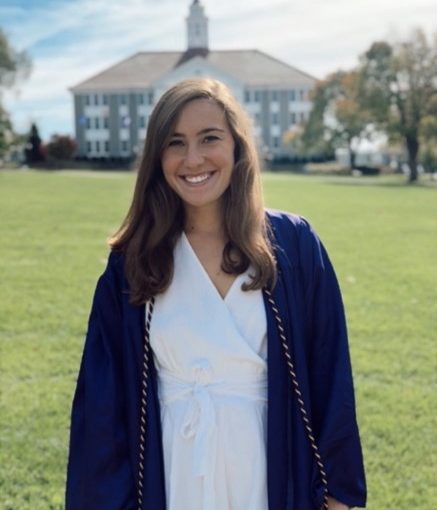Written by: Sam Rudolph
For Cayla DiGiovanni it was just another day as a college student. She was in her Sophomore year at James Madison University finding her way through her first few years. After her classes she decided to go to the gym for a quick run on the treadmill. It was nothing she had never done before. With two other people in the gym with her, she began running and within minutes went into sudden cardiac arrest at just 19 years old and dropped to the ground. The two other girls in the gym with her immediately went to assist her and called 911. For seven minutes she laid there as EMTs made their way to her apartment building. Per their protocol, the EMTs administered Naloxone in case of a potential drug overdose, but that was not the case. Cayla had been living with undiagnosed Hypertrophic Cardiomyopathy (HCM), a disease where the heart muscle becomes thick making it hard to pump blood. For 45 minutes she received CPR and was resuscitated to the point where she was breathing. It was after she began to regain her functions and her personality at UVA hospital that she was diagnosed with HCM. HCM typically goes undiagnosed because it has very few symptoms, although Cayla did experience some. “I always got red in the face when exercising, like beat red, not just a red face. I would get short of breath or dizzy when I stood up.” She also mentioned that HCM is genetic. After Cayla’s experience at the gym, it was discovered that her father also had HCM. Both of them now live with S-ICDs, devices implanted under their skin that can sense a sudden cardiac arrest and send an electrical pulse to reset the heart’s rhythm.
Cayla never imagined that something like this could happen to her at just 19 years old. She thought the slight feelings she experienced during exercise were normal and never considered the possibility of a serious issue being behind these feelings. Now, 4 years later, Cayla is living a healthy and active life. Along with having her S-ICD, she still needs to monitor her heart rate religiously, which she does on her Fitbit, and she no longer ignores the subtle signs she once did. She talked passionately about how her experience changed her life not only in regard to her body’s health, but also in her outlook on life. “I think it has definitely made me more positive. I think I live more like a ‘today could be my last day’ kind of thing. So, I am always like, ‘Why not go for it? Why not do this?’”
Now working with the American Heart Association’s Greater Washington Region as a Development Coordinator, Cayla spoke about how much the organization means to her. “Well it kind of means everything! After I graduated from JMU, I knew I wanted to work for the AHA either in D.C. or out west. I love this organization. I think that a lot of their research and findings help HCM patients, so it means a lot to me.” Cayla’s positivity is infectious, and it is safe to say that she turned an unfortunate event and diagnosis into something she is passionate about while also serving as an example that heart disease can reveal itself to anyone at any time.
